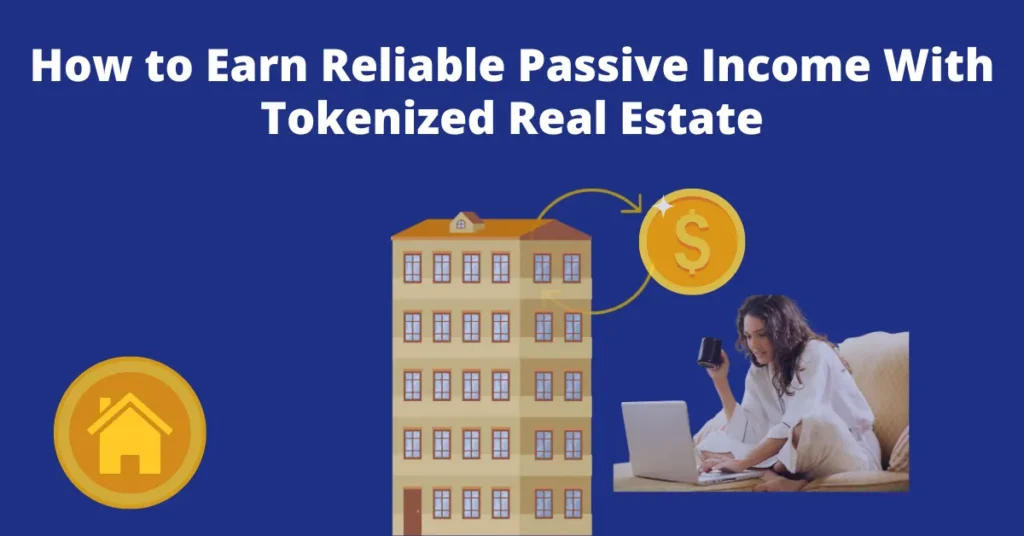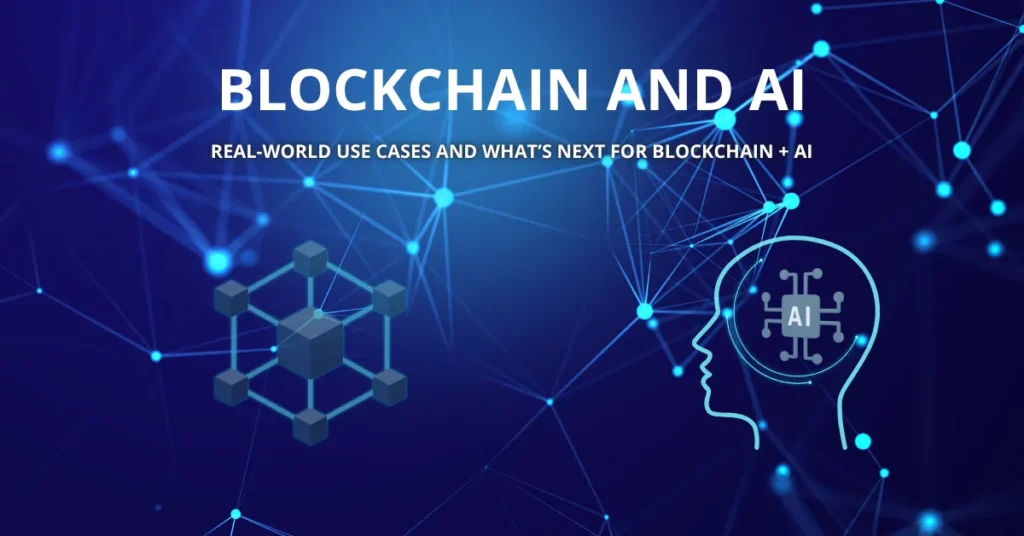The Rise of Tokenized Real Estate
Real estate is changing — and fast.
Thanks to blockchain technology, you no longer need to buy an entire building or deal with piles of paperwork to invest in property.
This new method is called tokenized real estate.
In simple words, it means a property is broken into small digital pieces (tokens). You can buy just one token — a tiny share of a real building — and earn rental income from it. You can also sell your token whenever you want. It is all done online, and you don’t need a lot of money to begin.
Platforms like RealT, Propchain, and Digishares are already helping people invest in real estate easily, from anywhere in the world.
What used to be only for the rich is now open to everyone.
If this is new to you, no worries — This guide will walk you through how it works, why it’s important, and how you can get involved.
start with confidence.
How to Make Passive Income with Real-World Asset Tokenization
What Is Tokenized Real Estate?
Tokenized real estate turns a property into small digital shares you can own. These shares are safely stored on the blockchain, so everything is clear and secure. It means you can easily invest in real estate online — even with a small amount of money.
Your $10T Tokenized Asset Revolution Starts Now: Tokenized Real-World Assets
REITs vs Tokenized Real Estate
You invest in a company that owns many properties. You don’t own any specific building — you own a share of the company, not a share of the property itself.
Tokenized real estate gives you direct ownership of small digital pieces of a real property using blockchain. You own a direct share of a specific property, not a company. You benefit directly from that asset’s income and value.
REITs are easier for beginners, while tokens offer more control, transparency, and flexibility.
NFTs vs Real Estate Tokens
Real estate tokens represent shared ownership in physical properties and can be bought or sold like shares.
NFTs are non-fungible and individual, while real estate tokens are fractional, standardized, and investment-focused.
Smart Contracts & Stablecoins
Smart contracts are like computer programs that run automatically on the blockchain.
Think of them as digital assistants that follow set rules — like sending rent money to all investors or transferring tokens when someone buys them.
No humans are needed to manage the process, which means fewer mistakes, faster deals, and no middlemen.
Smart contracts = automatic, trusted, no-human-needed real estate manager
Stablecoins are a form of digital money, but unlike Bitcoin or Ethereum, their value stays stable.
They are tied to real-world assets — usually the US dollar — so, for example, 1 USDC = $1. That’s why they’re called “stable.”
Most real estate platforms use stablecoins like USDC and USDT for smooth, predictable transactions.
- USDC is more regulated and transparent, with regular audits to prove it’s fully backed
- USDT is more widely used, but has faced some concerns about how well its reserves are managed
Both aim to stay at $1, making them ideal for real estate deals — with no price shocks or surprises.
Stablecoins + tokenized real estate = a modern, flexible, and global way to invest in property
Benefits of Tokenized Real Estate Investing
Let’s break down the biggest advantages that make tokenized real estate a smarter, more accessible way to invest.
1. Low Entry Barrier
You don’t need a fortune to start.
Instead of needing $100,000 to buy a rental apartment, you can invest just $100 and own a small share of it through tokens.
2. Global Access
Invest in real estate around the world — from home.
Live in Pakistan but want to invest in a U.S. rental property? Platforms like RealT let you buy token shares of properties in Detroit or Chicago from your phone.
3. Passive Income
Earn rental income without being a landlord.
If you own tokens in a property, you’ll receive your share of rent every week — no need to fix leaky taps or chase tenants.
4. Liquidity
Sell your property tokens anytime.
Unlike owning a full apartment (which could take months to sell), you can list your tokens on a marketplace and sell them in minutes or days.
5. Transparency & Security
Blockchain keeps everything visible and secure.
You can check your ownership, rental earnings, and transaction history online — and no one can secretly change the records.
6. Faster Transactions
Smart contracts save time and paperwork.
Buy property tokens in minutes — no lawyers, no signatures, and no waiting weeks for approval.
7. Diversification
Spread your investment risk across multiple properties.
Instead of putting all your money into one building, you can own tokens in a U.S. apartment, a European office, and an Asian co-working space — all at once.
8. No Middlemen
Skip expensive agents and brokers. You buy directly from the platform using stablecoins — no agent fees, no commissions, no paperwork mess.
Top Platforms Offering Tokenized Real Estate
Tokenized real estate is gaining traction, and these platforms are leading the movement by making property investment more accessible, global, and automated. Here’s a look at five top players in the space:
🔹 RealT
- Minimum Investment: ~$50
- Property Location: United States (mostly Detroit, Cleveland, Chicago)
- Return Type: Daily rental income (paid in stablecoins)
- Blockchain Used: Ethereum, Gnosis Chain
RealT is known for its simplicity and low barriers to entry. It distributes rent daily via smart contracts and is ideal for global investors seeking U.S. property exposure.
🔹 Lofty
- Minimum Investment: ~$50
- Property Location: United States
- Return Type: Daily rental income
- Blockchain Used: Algorand
Lofty offers instant liquidity with no lock-up period. You can sell your tokens at any time and receive rental income daily through automated smart contracts.
🔹 Propchain
- Minimum Investment: Varies (~$100+)
- Property Location: UAE, Europe, Global
- Return Type: Rental income or appreciation
- Blockchain Used: Ethereum
Propchain offers regulated real estate assets globally and focuses on compliance, security, and easy integration for crypto and fiat users.
🔹 Digishares
- Minimum Investment: Depends on client projects
- Property Location: Global (white-label solution)
- Return Type: Configurable (rents/dividends)
- Blockchain Used: Ethereum, Binance Smart Chain
Digishares powers the backend for many tokenization platforms. Ideal for real estate developers looking to tokenize their offerings.
🔹 SolidBlock
- Minimum Investment: ~$10,000+
- Property Location: U.S., Europe, Israel
- Return Type: Dividends and asset appreciation
- Blockchain Used: Ethereum
SolidBlock focuses on high-end commercial real estate, attracting institutional investors and offering premium asset-backed tokens.
Most Successful: RealT
Why RealT Stands Out
- Consistent Track Record: Launched in 2019, RealT has successfully tokenized 100+ properties across the U.S., offering a proven model for real-world asset tokenization.
- Daily Rental Income: Investors earn stable, daily passive income distributed in stablecoins like USDC — fully automated through smart contracts.
- Low Entry Point: Start investing with as little as $50, making real estate more accessible than ever.
- Global Reach: Open to international investors in over 40 countries, bridging real estate with DeFi.
- Strong Community: Maintains an active, loyal investor base and regularly engages through AMAs, forums, and updates.
- Tech + Compliance: Operates on Ethereum and Gnosis Chain, with thorough KYC/AML checks and legally compliant structures for each property.
🧠 Advanced Investment Perspective
- FDV vs. Market Cap: RealT’s valuation metrics are transparent, grounded in real property values, not inflated tokenomics.
- Utility Over Hype: The platform focuses on delivering real-world utility (rental income + property ownership), not speculative hype.
- Avoids Extreme APYs: Unlike high-risk DeFi platforms, RealT offers sustainable returns based on actual rent — no inflated APY traps.
- Transparent Governance: Properties are structured under U.S.-based LLCs, and investors receive regular updates and financials.
- Two-Token Model Benefits: RealT uses a dual-token approach — one representing ownership (property tokens), and another (RealToken DAO) for protocol-level participation and governance.
What to Watch in Tokenomics Before You Invest
Before investing in any tokenized real estate project, it’s essential to look beyond the marketing and examine the tokenomics — the financial structure behind the tokens. Here are five critical factors to evaluate:
FDV vs. Market Cap
Fully Diluted Valuation (FDV) reflects the total value if all tokens were in circulation. A huge gap between FDV and market cap may indicate overvaluation or slow adoption. Look for balance and realistic growth.
Utility Over Hype
Solid platforms focus on real-world value — like rental income, ownership rights, or governance — rather than speculative price pumps. Utility-driven tokens usually offer more long-term stability.
Avoid Extreme APYs
Be cautious with platforms offering unrealistically high yields. Extreme APYs often aren’t sustainable and could indicate a risky or inflated ecosystem. Consistent rental returns are a better sign of reliability.
Transparent Governance
Trustworthy platforms have clear structures — like LLC-backed properties, investor reporting, and compliance with local laws. Transparency builds confidence and ensures legal protection.
Two-Token Model Benefits
Some projects use dual-token models — one token for property ownership, another for governance or protocol utility. This can enhance functionality, decentralize control, and reduce regulatory risks.
Evaluating tokenomics is key to spotting strong, stable projects and avoiding short-term traps. Always research before you invest.
Step-by-Step: How to Start Investing in Tokenized Real Estate
Getting started with tokenized real estate is easier than it may sound — especially when compared to the long, paper-heavy process of traditional real estate investing. Here’s a simple step-by-step guide to help you begin:
Choose a Platform
Start by selecting a trusted platform based on your needs. For low entry costs and daily rental income, RealT or Lofty are great choices. For more international or institutional-grade options, explore Propchain or SolidBlock.
Complete KYC & Registration
This involves uploading identity documents — a standard requirement to comply with international regulations.
Fund Your Wallet
Some platforms also support fiat deposits via credit card or bank transfer. Make sure you check the funding options available on your chosen platform.
Browse Properties
Once your wallet is funded, explore available properties on the platform. You can view details like location, rental yield, token price, and expected returns. Most platforms offer detailed breakdowns, including documents, projected income, and token structure.
Buy Tokens
When you find a property that interests you, you can purchase fractional tokens representing your share in the asset. You’ll receive these tokens in your platform wallet or external blockchain wallet (depending on the setup).
Monitor Your Returns
After purchasing tokens, you’ll start earning rental income based on your share. This income is typically paid out in stablecoins (e.g., USDC) and is distributed daily, weekly, or monthly depending on the platform.
You can track your income and token value directly from your dashboard and sell your tokens if and when the platform supports secondary trading.
Tokenized real estate makes investing in property more flexible, transparent, and accessible — even if you’re starting small.
See full case study on passive income via tokenized real estate
Risks and Considerations
While tokenized real estate offers exciting opportunities, it’s a double-edged sword — combining innovation with risks that investors must carefully consider.
Regulatory Ambiguity
Regulatory Ambiguity means the rules aren’t clear or consistent yet.
Laws about owning real estate through tokens (digital shares) are still being developed in many countries. Some governments support it, others don’t, and some haven’t decided yet.
This means the legal status of your investment could change — for example, a platform might be fine today, but face restrictions tomorrow if new laws are introduced.
Market Volatility
Even though your real estate tokens are backed by actual property (like a house or apartment), their price can still go up and down — just like crypto.
Why?
Because the token is traded on the blockchain, its value can be affected by:
- 🔄 Crypto market trends (if crypto prices fall, token demand may drop)
- 🧑💻 Platform trust (if users lose trust in the platform, they may sell)
- 💧 Liquidity (if there aren’t enough buyers, you may need to sell cheaper)
So, even with tangible assets behind them, token prices don’t always stay stable — especially in uncertain or low-demand markets.
Custodial Trust
When you invest in tokenized real estate, many platforms hold your tokens and manage your rent payouts for you. This is called a custodial setup — they’re like the “middleman” between you and the blockchain.
You’re trusting them to:
- Keep your tokens safe
- Send you rent on time
- Follow legal rules
- Stay operational and secure
But if that platform is hacked, goes offline, gets sued, or mismanages funds, you could lose access to your investment or face delays.
So, you’re not just trusting the technology — you’re trusting the company behind it, which adds a risk.
Platform Failure
Platform failure means the company or website you’re using for tokenized real estate might stop working.
This could happen if:
- The company goes out of business (insolvent)
- It gets hacked
- It faces legal action or is banned in your country
If that happens, you might lose access to your tokens, rental income, or even ownership — especially if the platform didn’t set up proper legal protections (like property being held in your name through an LLC).
So, before investing, check how the platform protects your rights in case something goes wrong.
Tech Literacy
To invest in tokenized real estate, you need a basic understanding of how blockchain works — this is called tech literacy.
You should know how to:
Handle gas fees (small costs for transactions)
Understand DeFi platforms and how to use them safely
One Mistake, Big Loss
Before diving in, do your research, read platform documentation, and understand both the benefits and boundaries. Tokenized real estate is powerful — but only when approached with informed care.
FAQs: Beginner Concerns Answered
How much do I need to start?
Many platforms let you start with as little as $50 to $100, depending on the property and platform. It’s one of the most accessible ways to invest in real estate.
Is this legal in my country?
Laws vary. In some countries, tokenized real estate is supported; in others, it’s unregulated or restricted.
What if the platform shuts down?
If the platform has proper legal structures (like LLC ownership), you still technically own your share. But if not, you could lose access to tokens or income — so always research legal protections.
Can I sell anytime?
Some platforms may have holding periods or limited liquidity. Always read the fine print.
How is this different from REITs?
REITs pool investor money into a company that owns many properties. With tokenization, you own a direct share of a specific property — not a fund.
The Future of Real Estate Is Fractional, Digital & Borderless
Tokenized real estate is reshaping the way we invest — making property ownership easier, more affordable, and globally accessible. With entry points as low as $50, anyone can now own a fractional share of real estate and earn passive income — all without relying on banks, brokers, or complicated paperwork.
For first-time investors, tokenized real estate offers a modern path to build wealth using tools built for speed, transparency, and simplicity.
But like any financial venture, it’s important to approach with education and caution. Understand the risks, evaluate platforms carefully, and stay informed to make smart, secure decisions.
🎯 Ready to explore?
➡️ Check out platforms like RealT, Lofty, or Digishares to take your first step into property tokenization.


